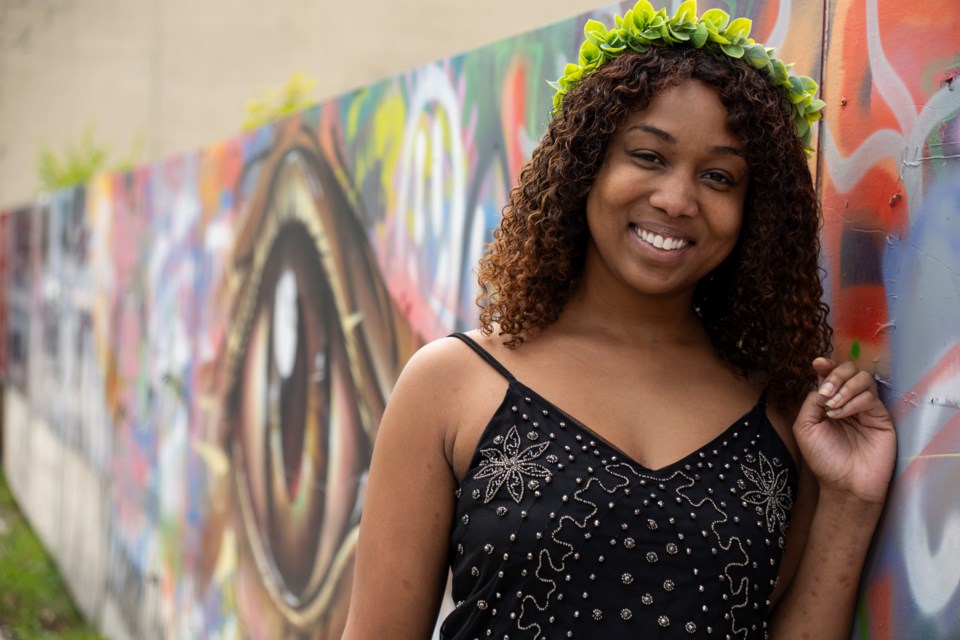Sometimes, figuring out the meaning of poetry can be a challenge.
Sometimes, figuring out the actions of politicians can be a challenge.
Combine the two? That’s a certain recipe for bewilderment.
Since 2010, Barrie has had a poet laureate whose role is to “serve as a literary ambassador and champion for poetry, language and the arts.” Tyneisha Thomas is the fourth poet to hold the role.
City council recently voted to change the way the city’s poet laureate is selected. Under the previous terms of reference, the city’s poet laureate was chosen by a committee which included the chief librarian, the poet laureate from another community and someone from the city’s cultural staff.
When a report from the city’s arts advisory committee came up at the infrastructure and community investment committee in early March, Deputy Mayor Robert Thomson introduced an amendment to replace that group with three city council members.
There was no reason given at the time and, surprisingly, no discussion among committee members, although Thomson later told councillors he was trying to bring the process more in line with the way other city committees operate.
That really didn’t clear matters up because, while it is true city councillors select the members of various committees and even, beginning with the current council, ensure a council member is named chair, non-councillor citizens make up the majority of almost all the advisory committees.
Mayor Alex Nuttall suggested city council, as a very diverse group in terms of background and occupation, is well-suited to the task of choosing a poet laureate.
“I think we are qualified to make this decision on behalf of the community,” he said, adding it was similar to having a committee of councillors choose the winners of the Spirit Catcher Award as Barrie’s outstanding citizen.
I’m not sure that comparison holds much weight either.
Choosing a poet laureate has more in common with hiring someone than giving an award. In 2023, Barrie had 662 employees on the Sunshine List, making more than $100,000 in salary. City council is involved in the hiring of exactly one of them: the city’s CAO. Councillors don’t take part in the hiring of any general managers or directors or even the fire chief. That’s left to the experts.
Yet when it comes to the $2,500-per-year poet laureate, the majority of councillors think they should be involved.
Coun. Amy Courser tried, at both general committee and city council, to lessen the influence of elected officials. While praising their desire to be “a passionate and involved council,” she proposed adding a couple of councillors to the selection committee, rather than replacing its members. The amendments didn’t fly. Even an attempt to delay the matter until staff could determine the selection method of other municipalities failed to pass.
To be fair, council was in full support of the other part of the arts advisory committee recommendation, which raised the Barrie poet laureate’s annual stipend to $2,500 from the current dismal $1,000, plus adding $1,500 toward the poet laureate holding a “poetry-focused event” in the community.
And Mayor Nuttall heaped well-deserved praise on Barrie’s current poet laureate, who has been extremely active in boosting the visibility of poetry in the community.
Furthermore, the same evening that councillors voted to politicize the hiring of the poet laureate, they made it clear they weren’t interested in micromanaging the arts. A suggestion from Coun. Sergio Morales that council be given a say in temporary public art installations, such as that seen on utility boxes, was rejected by every other council member. As Coun. Gary Harvey correctly pointed out: “Let’s leave it to the experts.”
As I said, poetry and politics can be confusing.
Barry Ward is a veteran editor and journalist who also served on Barrie city council for 22 years. His column appears regularly on BradfordToday and InnisfilToday affiliate BarrieToday.



